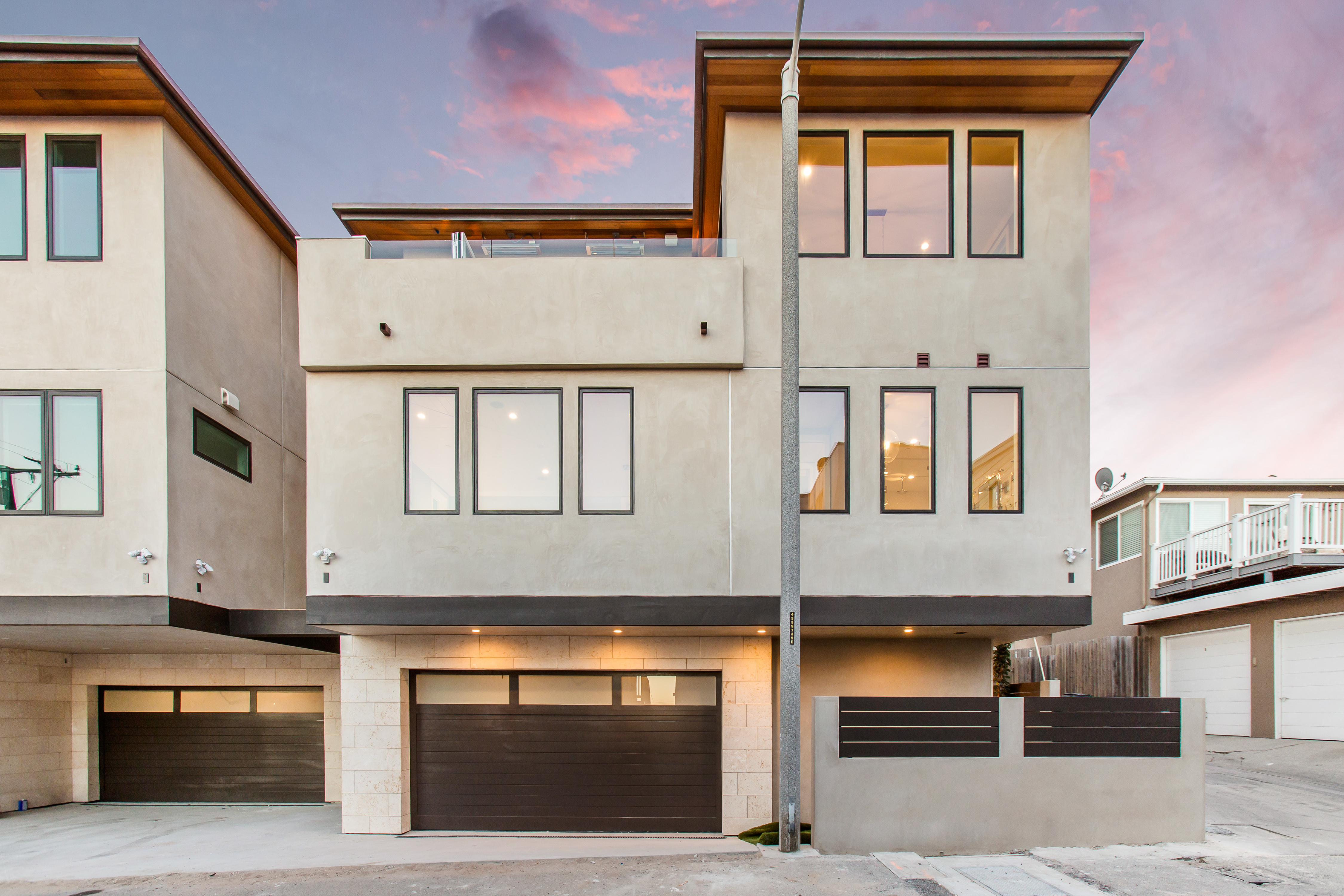New Construction Home Warranties
April 20, 2024 2:36 pmDo New Construction Homes Come with a Warranty?
Despite Covid 19, the Real Estate Market is stable and new construction is booming. There are new homes popping up all over Hermosa Beach and Manhattan Beach. One question that seems to keep coming up is, “Do new construction homes come with a warranty?”.
In a traditional real estate transaction with an owner/seller and a buyer, the seller usually provides a home warranty policy to the buyer. Special circumstances can arise in any transaction, but this is generally the case. When the house is newly constructed, the seller of that home, whether it is the builder or a third party such as an investor, will typically provide a new construction warranty. These warranties will vary by builder and/or provider.
The warranties provided by builders are exceedingly important because, unlike existing home purchases, the escrow process in connection with purchasing a new construction typically does not include a “physical inspection contingency” period. When buyers are purchasing an existing home, typically the buyer has an opportunity to conduct some due diligence as to the physical aspects of the property, and if the buyer is unsatisfied he or she can cancel the agreement without being in breach. Sellers of new construction, on the other hand, are often reluctant to include such a provision in their sales contracts. As a result, the new construction warranties provide important protections for buyers who might subsequently uncover issues for which the seller is responsible.
Custom Home Warranty
Negotiating a new home builder warranty can be a lengthy process. More times than not, a builder wants to limit their responsibility, so it is up to you to ensure your home has as much coverage as possible. Before signing a contract, be sure to ask the following questions:
- What is/is not covered by the warranty?
- Do you have any references from previous projects?
- How long does your warranty last?
- What is the process for submitting a claim?
A builder’s home warranty will typically include limited coverage on any supplies used to build your home and the items they built. These will often include:
- Carpentry
- Concrete foundations and floors
- Doors and windows
- Dry basement
- Electrical
- Garage doors
- Glass
- Heating and cooling
- Insulation
- Landscaping
- Plumbing
- Roofing
- Septic system
- Shingles
- Thermal and moisture cover
- Waterproofing
It can be frustrating thinking something is covered by a warranty when it’s not. Weather and normal wear-and-tear are generally not included in a builder’s home warranty. Other items that a builder’s warranty may not cover are:
- Household appliances
- Defects resulting from work conducted by the homeowner or anyone else after the builder’s work is completed
- Shrinkage and expansion of the house
- Normal fading of paint
- Shrinkage of joints/minor cracking
- Weather-related issues
- Dampness/condensation caused by failure of the homeowner to maintain adequate ventilation
- Insect damage
Submitting a claim correctly and on time will help ensure your coverage under a builder’s home warranty. If something breaks during the warranty period but you wait to report the issue until after it expires, your claim could be voided. Another pain point you might face when submitting a claim is the question of who is at fault. For example, if you decide to install a satellite on your roof and cause damage in the process, then you could be responsible for repairs, even if your roof is covered by the builder’s warranty. Doing a walk-through prior, during, and right after the building is complete can help avoid issues with responsibility.
If the builder does not provide a warranty, California law provides for implied new construction warranties. These warranties are contained in California Civil Code 896, et seq., also known as the “Right to Repair Act,” and are described below.
One Year Warranties
- “Fit and finish” of cabinets, mirrors, flooring, interior and exterior walls, countertops, paint finishes, and trim. California Civil Code section 900.
- “Manufactured products”, i.e. any product that is completely manufactured offsite, including efrigerators, stoves, etc., as well as HVAC units and fixtures. California Civil Code section 896(g)(3).
- Compliance with “interunit noise transmission standards set by the applicable government building codes, ordinances, or regulations in effect at the time of the original construction”, as applicable to attached structures. California Civil Code section 896(g)(6).
- Irrigation, drainage, and landscaping systems. California Civil Code sections 896(g)(7) and 896(g)(12).
Two Year Warranties
- “Untreated wood posts” that are installed in contact with soil such that they cause unreasonable decay. California Civil Code section 896(g)(8).
- Dryer ducts. California Civil Code section 896(g)(14).
Four Year Warranties
- Plumbing and sewer systems. California Civil Code section 896(e).
- Electrical systems. California Civil Code section 896(f).
- Exterior pathways, driveways, hardscape, sidewalls, sidewalks, and patios. California Civil Code section 896(g)(1).
- Untreated steel fences and adjacent components that cause unreasonable corrosion. California Civil Code section 896(g)(9).
Five Year Warranties
- Paint and stains causing deterioration of building surfaces. California Civil Code section 896(g)(10).
Ten Year Warranties
- Other components not specifically referenced in other warranties, including foundation systems, retaining and site walls, support beams, etc. California Civil Code sections 896 and 941.
Dispute Resolution Procedures
As its name indicates, the Right to Repair Act not only provides for warranties but also provides builders with the right to repair defects before being subjected to legal proceedings. Prior to filing an action against a builder, the claimant must submit a claim describing the defect and allowing the builder to inspect the defect. The builder then has the option to offer to repair the defect, mediate the dispute, or offer cash in lieu of the repair.
This article is not intended to be, nor should it be interpreted to be, legal advice. Please consult with an attorney concerning the specifics of your situation, and whether a new construction warranty might apply.







